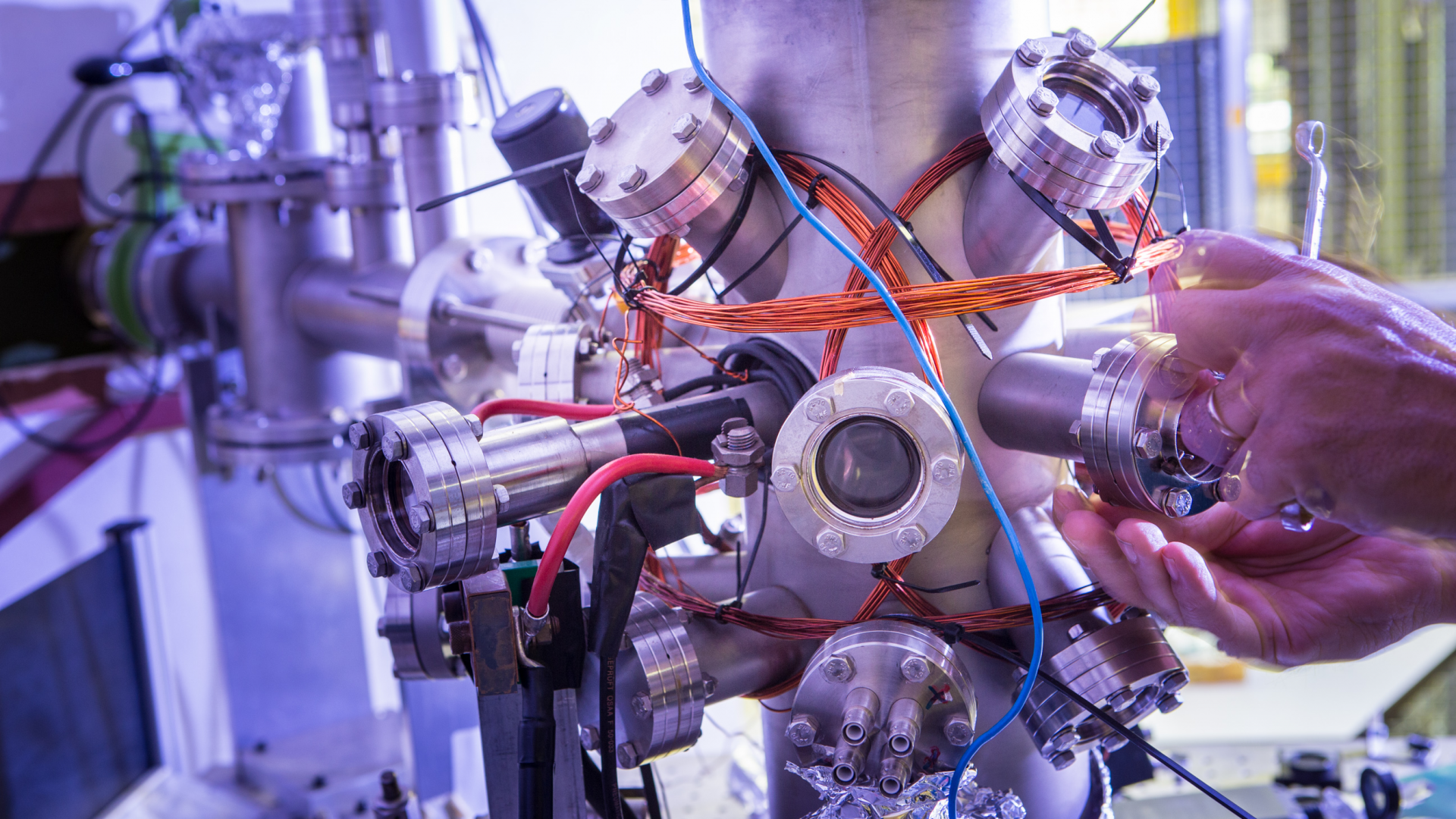EUV spectroscopy of Sn5-Sn10+ions in an electron beam ion trap and laser-produced plasmas
Emission spectra from multiply-charged Sn$^{5+}$–Sn$^{10+}$ ions are recorded from an electron beam ion trap (EBIT) and from laser-produced plasma (LPP) in the extreme ultraviolet range relevant for nanolithographic applications. Features in the wavelength regime between 12.6 and 20.8,nm are studied. Using the Cowan code, emission line features of the charge-state-resolved Sn ion spectra obtained from the EBIT are identified. Emission features from tin LPP either from a liquid micro-droplet or planar solid target are subsequently identified and assigned to specific charge states using the EBIT data. For the planar solid tin target, the $4d$–$5p$ transitions of Sntextsuperscript{8+}–Sntextsuperscript{10+} ions are shown to dominate the long-wavelength part of the measured spectrum and transitions of type $4d$–$4f$ + $4p$–$4d$ are visible in absorption. For the droplet target case, a clear increase in the charge state distribution with increasing laser intensity is observed. This qualitatively demonstrates the potential of using long-wavelength out-of-band emission features to probe the charge states contributing to the strong unresolved transition array at 13.5,nm relevant for nanolithography.








